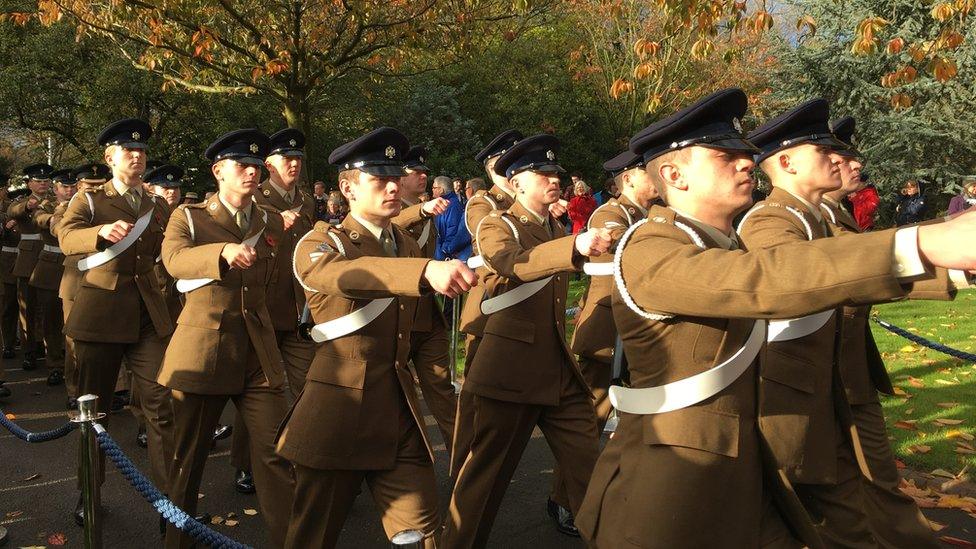Remembrance Sunday 'as relevant and poignant as ever'
- Published
Communities across Wales fell silent to remember those who died in World War One
Remembrance Sunday is "as relevant and poignant as ever" 100 years after World War One, the first minister has said.
Carwyn Jones joined Prince Edward and Sophie Countess of Wessex for a service at Llandaff Cathedral, after a ceremony at Cardiff's war memorial.
Armistice Day events began at 06:00 GMT, when pipers at cathedrals in cities including Swansea and St Davids played an end of battle lament.
This year marks 100 years since WW1 ended in 1918.
For the centenary, about 100 beacons of light were lit across Wales.
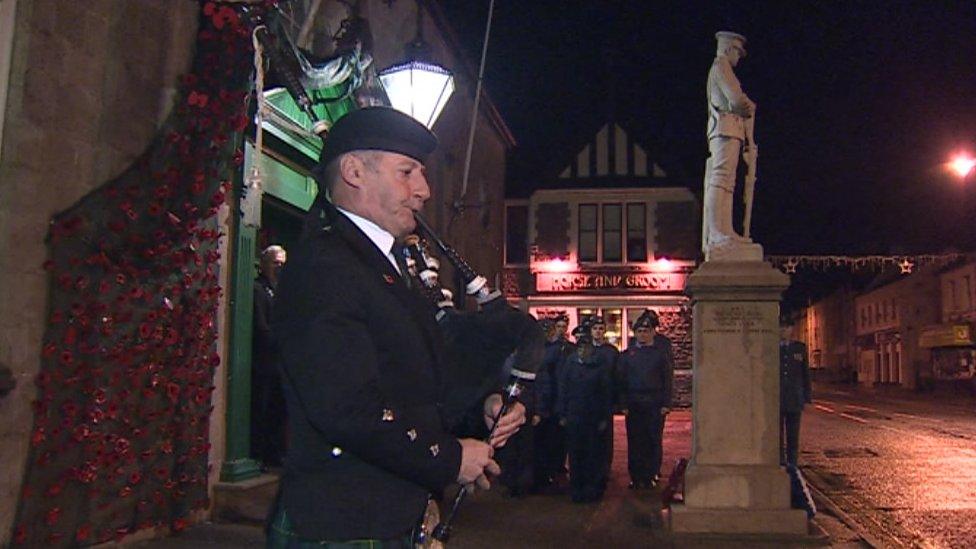
The day's events started at 06:00 GMT with pipers playing the Scottish lament "Battle's O'er" around Britain, including Cowbridge
These will be from Chepstow, Monmouthshire to St Davids, Pembrokeshire and Anglesey to Wrexham, with 1,000 throughout the UK, symbolising an end to the darkness of war and a return to the light of peace.
Mr Jones attended a service at the Welsh National War Memorial in Cathays Park, Cardiff, on Sunday morning.
"(It) gives us an opportunity to reflect on the sacrifices service men and women have made to ensure our freedom today," he said.
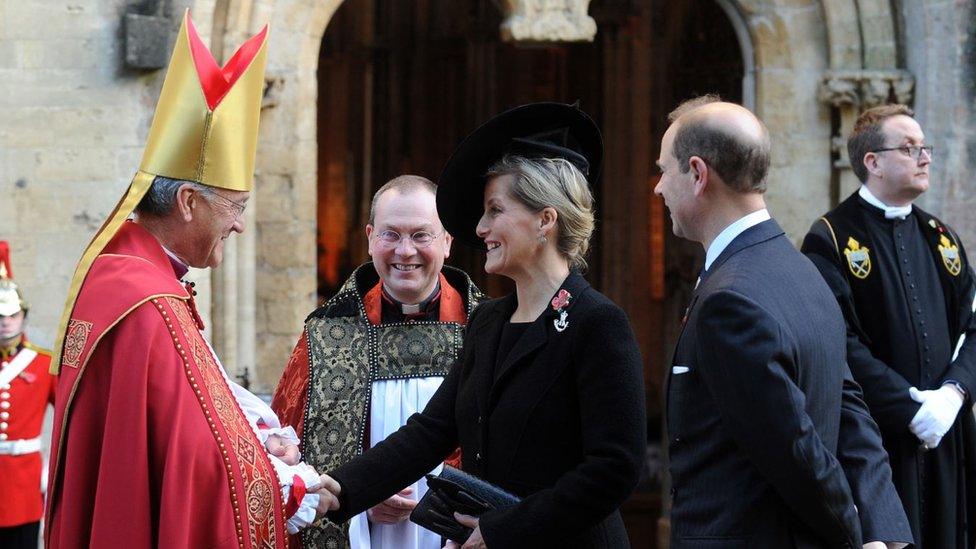
Prince Edward and Sophie Countess of Wessex attended a national service at Llandaff Cathedral
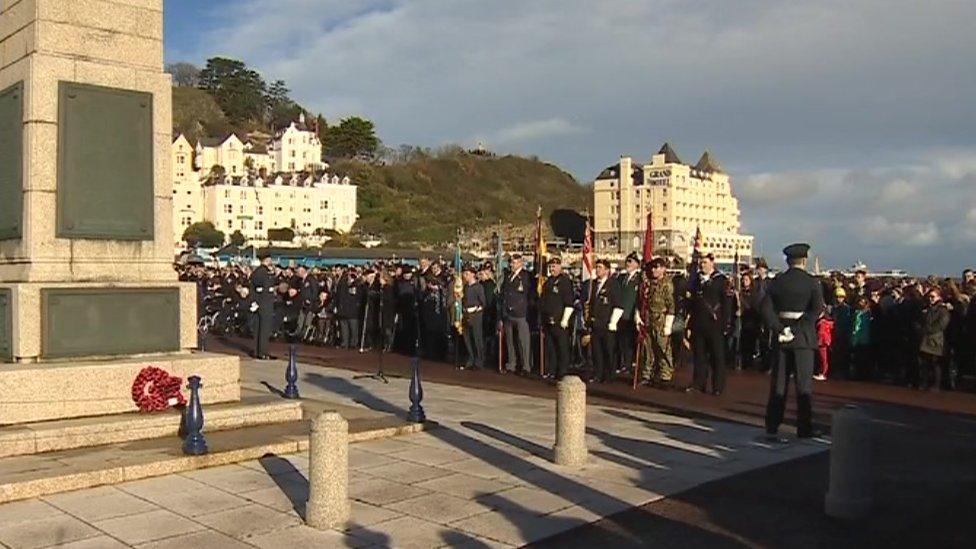
Crowds pay their respects at Llandudno
A televised national remembrance service was held at Llandaff Cathedral, led by the Archbishop of Wales.
The Most Reverend John Davies said: "Tragically, the gift of peace with which the world was presented 100 years ago has regularly and bloodily been squandered in many different places and in many subsequent years.
"But if this leads us to simply view prayers and messages of peace as expressions of admirable sentiments but unattainable ideals, we risk emptying today of real meaning."
Beacons were lit as a final act of remembrance on Armistice Day
Between 1914 and 1918, about 237,000 men and boys from Wales - 20% of the male population - served in WW1 with 38,000 dying.
The Royal British Legion's manager for Wales Antony Metcalfe said: "It is important we never forget the contribution and sacrifices of our past heroes but we must also look forward with hope for our Armed Forces community of today."
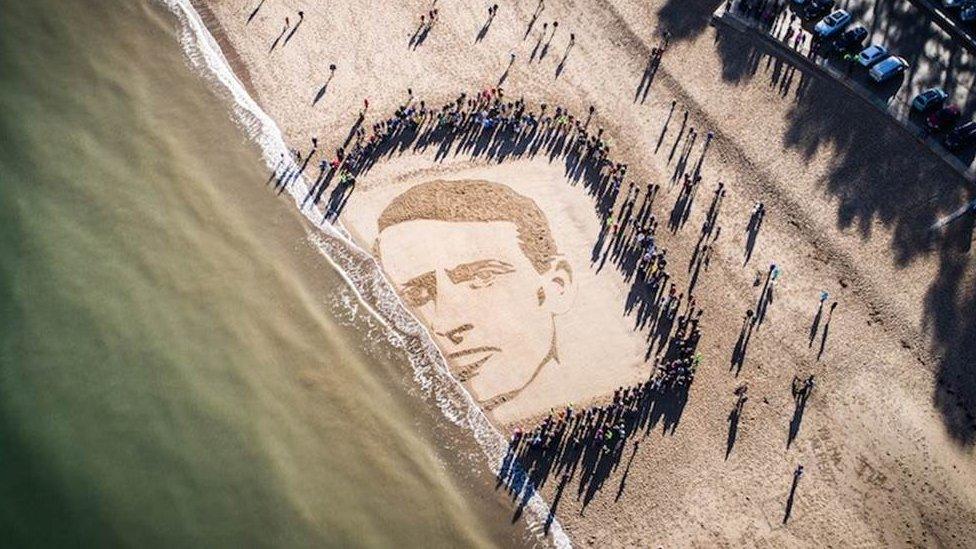
At 11:00, people watched in silence as the tide began washing away the sand portrait of Hedd Wyn
A portrait of poet and war hero Hedd Wyn was created in the sand at Colwyn Bay, Conwy, as part of the Pages of the Sea project, external, but began washing away as the tide began to rise from 10:30.
It was one of a number of portraits of WW1 figures created on beaches across the UK, in a project led by film director Danny Boyle.
Other WW1 figures were created on the sands at Swansea Bay and Broad Haven, in Pembrokeshire.
Allow X content?
This article contains content provided by X. We ask for your permission before anything is loaded, as they may be using cookies and other technologies. You may want to read X’s cookie policy, external and privacy policy, external before accepting. To view this content choose ‘accept and continue’.

The Armistice 100 years on

Long read: The forgotten female soldier on the forgotten frontline
Video: War footage brought alive in colour
Interactive:, external What would you have done between 1914 and 1918?
Living history: Why 'indecent' Armistice Day parties ended

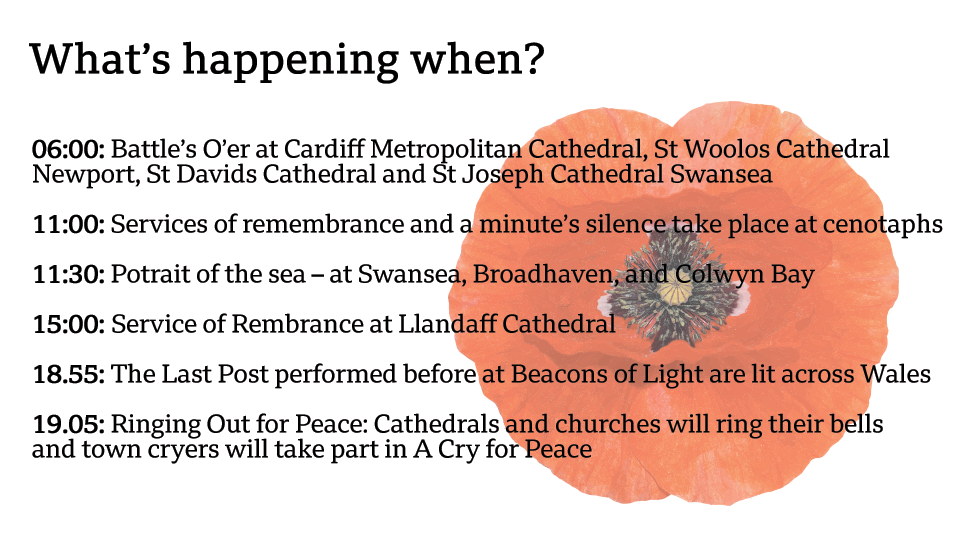
"This will be a unique moment to say goodbye and thank you, together, to the millions of men and women who left their shores during the war, many never to return," Boyle said.
About 100 town criers in the UK and other countries will also join together in an International Cry for Peace around the World.
These will be in Montgomery and Llandrindod Wells, Powys and Cowbridge, Vale of Glamorgan.
As well as the soldiers lost, the 480,000 horses that died will be remembered with the showing of a special video and minute's silence at Ffos Las Racecourse, Carmarthenshire.
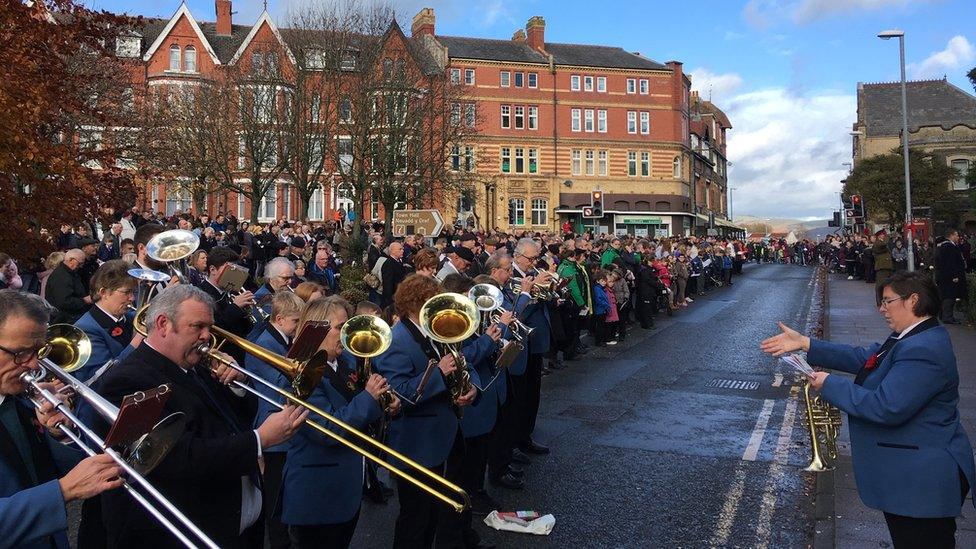
Crowds in Llandrindod Wells, Powys
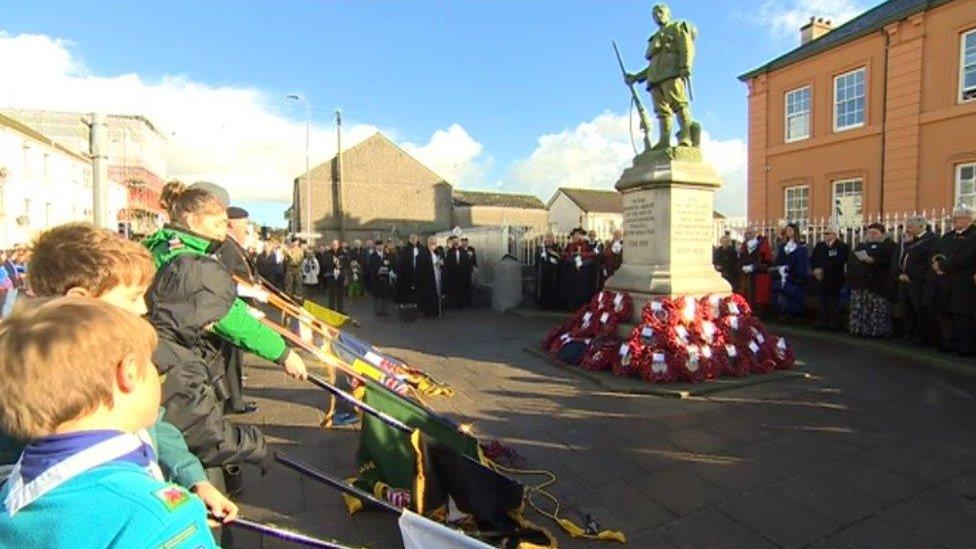
Services took place around the country, including Carmarthen
- Published6 November 2018
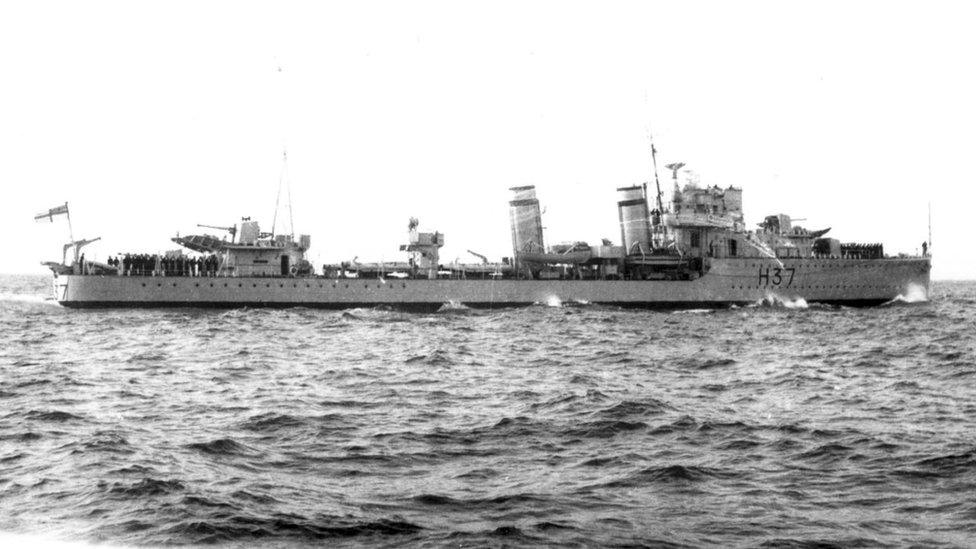
- Published8 November 2018
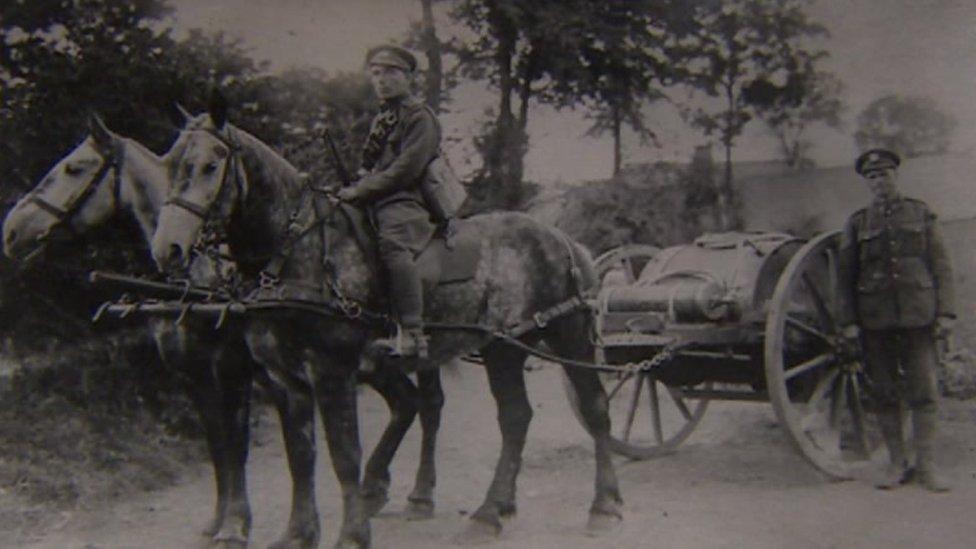
- Published7 November 2018
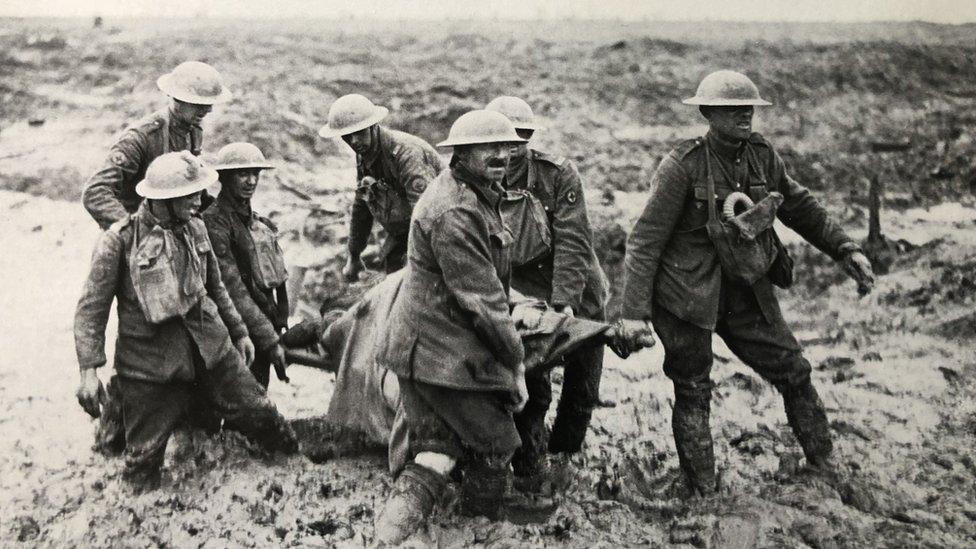
- Published6 August 2014
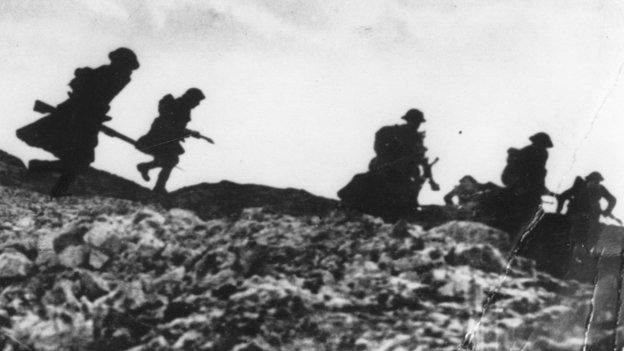
- Published12 November 2017
